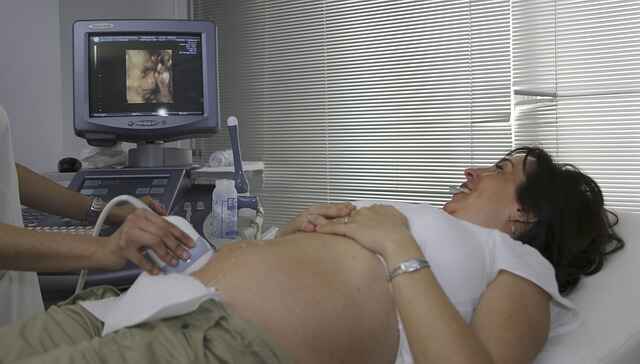Pregnancy “normally” lasts 40 weeks, however, it can last up to 42 weeks. The Three trimesters of pregnancy make up the year. Between 12 and 14 weeks, or roughly 3 months, make up each trimester.
First Trimester
Conception occurs in week 2, and pregnancy dates are counted from the first day of your most recent period. From the first through the twelfth week of pregnancy, the first trimester lasts. Although you might not appear pregnant in the first trimester, your body is undergoing significant changes to make room for your developing baby.
These Changes Accompany Many Early Pregnancy Symptoms, Such As:
- fatigue
- morning sickness
- headaches
- constipation
Your baby’s development during the first trimester is crucial. By the conclusion of the third month, the baby’s entire organ system will be formed, making this period of development critical. It’s crucial to keep up a healthy diet, which should include getting enough folic acid to help prevent neural tube defects.
Refrain from smoking and drinking alcohol. These behaviors and drug usage, including the use of some prescription medications, have been related to severe pregnancy problems and birth defects. Six to eight weeks after your last period, you should make an appointment with a doctor. An additional urine test or a blood test will be used to verify your pregnancy.

Second Trimester
Most pregnant women find their most comfortable time to be during the second trimester (weeks 13 to 27). The majority of the early pregnancy symptoms will eventually go away. Your energy levels will probably increase during the day, and you’ll be able to have a better night’s sleep.
Your uterus will expand quickly, giving the impression that you are pregnant. It’s a good idea to buy maternity apparel, stay away from constrictive clothing, and, if you’re feeling up to it, tell your friends and family that you’re expecting.
While the early pregnancy discomforts should subside, there are a few additional symptoms to get used to. Leg cramps and heartburn are frequent complaints. Your appetite may increase, and your weight gain may quicken. Work to attain the weight that your doctor has advised. Every time you visit the doctor, take a walk, make a good meal selection, and discuss weight gain.
Back pain, nasal congestion, and varicose veins could all start to show up. Most pregnant women feel their baby move for the first time during the second trimester, generally around 20 weeks. In the second trimester, the baby can even hear and know your voice. Between weeks 18 and 22, an anatomy ultrasound may be done. Parts of the baby’s body will be measured and evaluated during this scan to make sure they are developing normally.
Also Read: All You Need To Know About Chemical Pregnancy!!!
These Body Parts Include The:
- Heart
- Lungs
- Kidney
- Brain
Doctors frequently perform gestational diabetes screenings throughout the second trimester. The detection of gestational diabetes occurs between weeks 26 and 28 of pregnancy. You might be tested sooner if you have a family history of diabetes or other risk factors for the disease.
Third Trimester
The third trimester begins at week 28 and lasts until your baby is born. You’ll start visiting your doctor more frequently throughout the third trimester. Your physician will typically:
- Detect protein in your urine.
- evaluate your blood pressure
- Check the foetal heart rate.
- Examine the edoema in your hands and legs.
In order to track how your body is preparing for childbirth, your doctor will also ascertain your baby’s position and examine your cervix. You will undergo a group B streptococcus screening somewhere between weeks 36 and 37. Your vaginal area will be swabbed quickly before being transported to a lab for analysis.
If group B strep, generally known as GBS, is transmitted to neonates during delivery, it can be extremely dangerous. If you have GBS, you will be given antibiotics throughout labour to shield the baby from the infection. During the third trimester, there are travel restrictions. In case you enter labour early, it is advisable that you remain in close proximity to your doctor or midwife.

How The Body Changes Of The Pregnant Woman
Your breathing and heartbeat are moving more quickly. Your breasts grow swollen, heavier, and more painful. You experience frequent urination because your expanding uterus puts pressure on your bladder. Mood swings could be experienced.
How Does The Foetus Look And Develops
The sperm and egg join forces to produce a zygote during fertilisation in one of the fallopian tubes. A morula develops when the zygote descends from the fallopian tube. When the morula enters the uterus, it develops into a blastocyst. It is then known as implantation when the blastocyst burrows into the uterine lining.
What Tests Need To Be Done?
Fetal ultrasonography and maternal blood tests are used in first-trimester screening. This screening procedure can assist assess the likelihood that the foetus will have particular birth abnormalities. Prenatal testing during the second trimester may involve a number of blood tests known as multiple markers.
What To Eat During Pregnancy?
- Dairy products
- Legumes
- Sweet potatoes
- Salmon
- Eggs
- Berries
- Whole grains
- Avocados
- Dry fruits
- Fish liver oil

Avoid Food To Eat During
- Unpasteurized foods
- Poultry
- Raw fish and shellfish
- Excess caffeine
- Refrigerated or uncooked seafood
- Undercooked meat
- Dirty fruits and veggies
- Herbal tea
Also Read: Know Why Pregnant Women Must Drink Coconut Water Every day or Quite Often!
Conclude
In its own unique way, pregnancy is incredibly challenging. Your situation will improve the more you understand it. During pregnancy, each woman experiences her own adventure. For a woman, even her second pregnancy is different from her first. So, it’s crucial to maintain contact with your doctor to get your questions answered and to avoid panicking.





